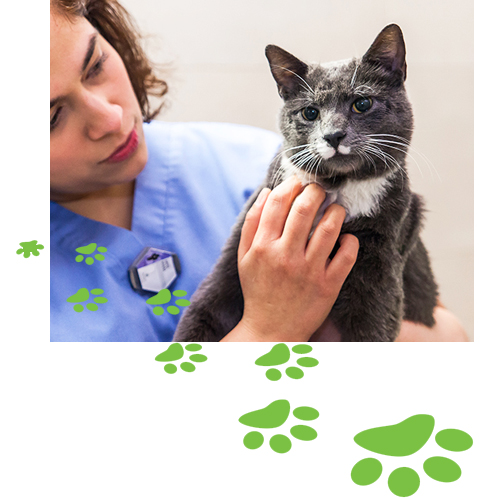Feline Parasite Control and Prevention Back
For the first four months of their lives, kittens should be tested for intestinal parasites and also dewormed regularly.
If your cat likes to be outdoors, the fecal sample should be tested annually to ensure that your cat is safe and is not harboring any parasites that can be detrimental to your health. Be sure to share the lifestyle details of your cat with our veterinarian so that the correct preventatives can be prescribed.
Types of parasites and symptoms in cats
Common parasites found in cats are roundworms, tapeworm, hookworm, giardia and coccidia.
Symptoms if your cat has any parasites:
These are some of the symptoms that you should be aware of, however, many times your cat might not demonstrate any of these at all. You might even see small rice grain size segments of the worm in the feces in case of tapeworms. That is why it is so important for annual exams for your cat.
- Enlarged abdomen
- Dry skin and fur
- Diarrhea
- Vomiting (possibly with presence of worms)
- Weight loss
- Loss of energy and lethargy
Danger of worms to humans
The eggs of these parasites are shed in the feces of your cat. These are communicable to humans easily, especially small children.
In case your cat is diagnosed with these parasites, we will give you instructions for the protocol that needs to be followed within the home to prevent spread and infection in your family. It is best to be extra meticulous when cleaning up areas where feces is found and keeping children away from these places.
If you are worried about infection in your family, please contact your local health department or family doctor for more information and advice.


